Poker Game in India: A Cultural and Social Evolution
In recent years, poker has emerged as a significant cultural phenomenon in India, blending tradition with modern entertainment. The game’s popularity has surged, reflecting a shift in societal attitudes towards leisure and gambling. Poker’s intricate blend of skill, strategy, and chance has captivated players across the nation, turning it into more than just a card game—it’s a symbol of social interaction and intellectual challenge. This evolution of poker in India is a story of adaptation, growth, and the fusion of old and new.
Introduction to Poker in India
India, a land of diverse cultures and traditions, has witnessed a fascinating evolution in its entertainment scene, with poker emerging as a popular and increasingly recognized pastime. Poker, a game of skill, strategy, and a bit of luck, has a rich history that dates back centuries, and in recent years, it has found a new home in the vibrant streets and digital landscapes of India.
The game of poker, with its origins shrouded in mystery, has been played in various forms across the globe. In India, the game has taken on a unique character, blending local customs with the global appeal of the game. From the bustling streets of Mumbai to the serene beaches of Goa, poker has become a staple in the country’s leisure activities.
One of the most notable aspects of poker in India is its adaptability. The game has been seamlessly integrated into the Indian way of life, with players of all ages and backgrounds finding enjoyment in its complexities. From college students to corporate professionals, poker has become a way to unwind, socialize, and challenge one’s intellect.
The popularity of poker in India can be attributed to several factors. Firstly, the game’s strategic nature appeals to the Indian psyche, which values intellectual challenges and mental acuity. Secondly, the competitive spirit inherent in poker resonates well with the Indian ethos of winning with grace and losing with dignity. Lastly, the social aspect of the game, where players gather to share stories and strategize, is deeply rooted in Indian culture.
In India, poker is not just a game of cards; it’s a social event. It’s not uncommon to find groups of friends and colleagues gathering at homes or in public venues to play a friendly game of poker. The atmosphere is usually casual and friendly, with players often betting small amounts of money for fun rather than for high stakes.
The game of poker in India is also influenced by local customs and traditions. In some regions, the game is played with specific rules and variations that reflect the local culture. For example, in certain parts of the country, players might use a traditional Indian currency, such as the rupee, for bets, or they might incorporate local card games into their poker sessions.
The legal landscape of poker in India is complex and often misunderstood. While the game itself is not illegal, the way it is conducted can vary from state to state. In some states, poker is permitted in private gatherings, while in others, it is regulated and taxed as a form of gambling. This legal ambiguity has led to a variety of interpretations and practices, with players and organizers often navigating a gray area.
Despite the legal challenges, poker has thrived in India. The country has seen the emergence of several high-profile poker tournaments, both online and offline. The biggest of these is the Indian Poker Championship (IPC), which has gained a reputation for attracting some of the best players from across the country and abroad.
Online poker has also seen a surge in popularity, with several platforms offering a variety of games and tournaments. These platforms have made poker more accessible to a wider audience, allowing players to compete from the comfort of their homes. The online scene has also given rise to a new generation of poker players who are discovering the game at a younger age.
The poker community in India is a tight-knit group of enthusiasts who share a passion for the game. This community organizes regular meetups, tournaments, and discussions, fostering a sense of camaraderie and support. It’s not uncommon for players to travel across the country to attend events and compete against others.
The impact of poker on Indian society is multifaceted. It has become a platform for social interaction, a means of entertainment, and a source of intellectual stimulation. Poker has also provided a platform for players to showcase their skills and potentially turn their hobby into a profession.
In conclusion, poker in India is a testament to the game’s adaptability and appeal. As the country continues to evolve, so too does its relationship with poker. Whether played in a casual setting or at high-stakes tournaments, poker remains a vibrant and integral part of India’s entertainment scene.
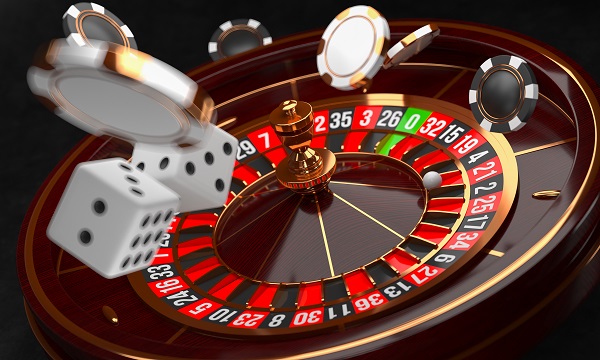
The Rise of Poker in Indian Culture
In recent years, poker has experienced a remarkable surge in popularity within Indian culture, becoming a significant part of the nation’s social fabric. This newfound interest in the game is a blend of several factors, including a growing awareness of poker’s strategic depth, the influence of global poker circuits, and the rise of online gaming platforms.
The advent of poker on Indian television screens has played a pivotal role in popularizing the game. Shows like “Poker Night” and “Poker Baazi” have brought the thrill of the game into living rooms across the country, showcasing the skills and strategies of professional players. This exposure has sparked a curiosity among viewers, leading many to try their luck at local clubs and online.
Social clubs and gaming lounges have become hubs for poker enthusiasts, with many cities witnessing the opening of dedicated poker rooms. These venues offer a space for players to gather, compete, and enjoy the camaraderie that comes with the game. The rise of these clubs has also created a sense of community, with regular tournaments and events fostering a loyal following.
The online poker scene in India has seen exponential growth, thanks to platforms that cater to players of all skill levels. These sites have made it easier for enthusiasts to play from the comfort of their homes, offering a variety of games and tournaments that suit different preferences. The convenience and accessibility of online poker have contributed significantly to its popularity.
The influence of international poker circuits, such as the World Series of Poker (WSOP) and the European Poker Tour (EPT), cannot be overlooked. Indian players have begun to make their mark on these prestigious events, winning titles and accumulating prize money. This success has inspired a new generation of players to take up the game seriously.
Cultural events and festivals have also embraced poker as a part of their activities. From corporate events to charity galas, poker has become a staple in many social occasions, bringing together players from diverse backgrounds. This integration into various social circles has helped poker shed its image as a niche game and establish itself as a mainstream form of entertainment.
The rise of poker in Indian culture has also sparked a renewed interest in the game’s history and strategy. Poker clubs often host workshops and seminars led by experienced players and professionals, providing valuable insights into the game’s nuances. This educational aspect has helped to elevate the status of poker from a mere pastime to a respected form of intellectual entertainment.
The economic impact of poker is also notable. As the game gains popularity, it contributes to the growth of the entertainment and hospitality industries. Poker tournaments attract large crowds, generating revenue through entry fees, sponsorships, and merchandise sales. This economic boost has encouraged more businesses to invest in the poker sector.
The rise of poker in Indian culture is not without its challenges. Legal issues remain a concern, with some states imposing strict regulations on gambling activities. However, the popularity of the game suggests that it may be difficult to suppress entirely. Poker enthusiasts have found creative ways to participate in the game, often turning to online platforms that operate under different legal frameworks.
The integration of poker into Indian culture is a testament to the game’s adaptability and appeal. From its roots in the card rooms of Mumbai to its current status as a mainstream entertainment option, poker has become an integral part of the nation’s cultural landscape. As more players discover the joys of the game, it’s likely that poker’s presence in Indian culture will only continue to grow stronger.
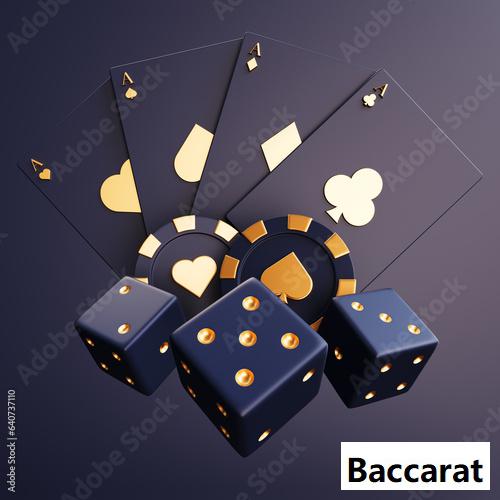
Popular Poker Variants in India
In India, poker has not only become a popular form of entertainment but also a testament to the country’s diverse cultural landscape. The game has adapted to local tastes, leading to a variety of poker variants that resonate with players across the nation. Here’s a closer look at some of the most popular poker games in India:
The classic form of poker, Texas Hold’em, has found a significant following in India. Its simplicity and the potential for big wins have made it a staple in both online and live poker circles. Players appreciate the strategy involved, as well as the ability to play a hand that can be built from two private cards and five community cards.
Omaha, another staple in the poker world, has also taken root in India. This variant requires players to use exactly four of their private cards and five community cards to form the best hand. The higher the hand, the greater the potential payout, and the complexity of the game adds to the excitement of each hand.
The Indian version of 5 Card Draw, often simply called “Draw,” is a favorite among players who enjoy a more straightforward game. In this variant, players are dealt five cards, and they can choose to exchange some of their cards with new ones from the deck. The aim is to improve one’s hand to the highest possible five-card combination. Its simplicity and the strategy involved in deciding which cards to keep or draw have made it a go-to game for many Indian poker enthusiasts.
Red Dog, a game that doesn’t require a deck of cards, has gained popularity in India. It’s a dice game that resembles poker in its betting structure. Players bet on whether the roll of two dice will result in a number between 4 and 10. The game’s ease of play and the thrill of the dice roll have contributed to its appeal among Indian players.
Razz is a lowball form of poker that has gained a following in India, particularly in the southern states. In Razz, the lowest possible five-card hand wins the pot, with the ace being the lowest card and straights and flushes not counting against a player’s hand. The game requires a different strategy from traditional high-hand poker, which adds to its intrigue and complexity.
Seven Card Stud has been a traditional favorite in India, especially in the northern regions. Players are dealt seven cards, with some cards being face-up and others face-down, depending on the variant of Stud being played. The strategy here lies in knowing when to bet and when to fold based on the visible and hidden cards.
Poker Solitaire, while not a multiplayer game, has gained popularity as a solo poker experience in India. It’s a single-player version of draw poker where the player aims to build the best five-card hand from a shuffled deck. The game’s simplicity and the challenge of improving one’s hand make it a solo activity that many Indian poker fans enjoy.
The Indian Poker variant, often referred to as “Indian Poker,” is a mix of Draw and Stud. Players are dealt a mix of face-down and face-up cards, and they can choose to draw and discard cards to improve their hand. The game’s adaptability and the strategic depth it offers have made it a staple in Indian poker circles.
In recent years, a new variant called “Omaha Hi/Lo” has emerged, combining the high-low split of Omaha with the ability to win both the high and low pots in a single hand. This has added a new layer of strategy and excitement to the poker scene in India.
Each of these poker variants has its own unique charm and appeal, contributing to the rich tapestry of poker in India. From the classic appeal of Texas Hold’em and Omaha to the lowball strategy of Razz and the dice-based excitement of Red Dog, the poker landscape in India is as diverse as its people. The popularity of these games reflects not just a love for the game itself, but also a celebration of the rich cultural heritage and the dynamic spirit of innovation that defines Indian society.
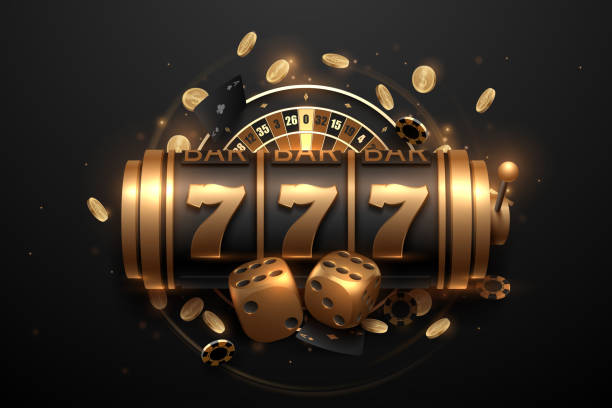
The Legal Landscape of Poker in India
The legal landscape surrounding poker in India is as complex as the game itself, with a patchwork of regulations and interpretations that have evolved over time. Understanding the legal nuances requires a look into the country’s historical approach to gambling, its laws, and the exceptions that have allowed poker to thrive in certain circles.
Gambling has been a topic of debate in India for centuries, with various forms of betting and games of chance being popular in different regions. However, the legal status of poker in India is not uniformly clear due to the lack of a specific federal law governing gambling. Instead, the legal framework is based on state-level legislation and the Public Gaming Act of 1867.
The Public Gaming Act of 1867 is the cornerstone of gambling laws in India. It prohibits “public gaming houses” and the use of “any table, board, or instruments of any kind whatever for the purposes of gaming or betting,” which has been interpreted to include poker. However, the act does not explicitly mention poker by name, leading to a degree of ambiguity.
In many states, such as Maharashtra, Karnataka, and Assam, the strict interpretation of the Public Gaming Act has resulted in poker being deemed illegal. This means that playing poker for money in these states can lead to severe penalties, including fines and imprisonment. In these regions, poker enthusiasts often gather in private homes or underground clubs to play for leisure, avoiding the risk of legal repercussions.
On the other hand, there are states where poker is more leniently regulated or even legal. Goa, for instance, has a specific law that allows for regulated gambling, including poker, in its casinos. This has created a vibrant poker scene in the state, with several high-stakes tournaments and cash games taking place in its well-known casinos.
In some states, like Sikkim, the government has taken a different approach by legalizing and regulating poker through the Sikkim Online Gaming (Regulation) Act, 2008. This act allows for the operation of online poker sites and land-based poker rooms under strict regulatory oversight. The state has even hosted international poker tournaments, showcasing its progressive stance on the game.
The legal status of poker in India is further complicated by the fact that some states have taken a piecemeal approach to gambling laws. For example, Andhra Pradesh banned online gambling in 2016 but has not explicitly addressed the legality of poker. This has led to a situation where online poker sites may operate without legal challenges in some areas, while in others, they face potential legal action.
The rise of online poker platforms has also introduced a new layer of legal complexity. While the central government has not issued a specific ban on online poker, the Information Technology Act of 2000 allows states to regulate or ban online activities within their jurisdiction. This has led to a patchwork of state-level laws, with some states allowing online poker sites to operate while others have taken action to shut them down.
The legal landscape is not static, and there are ongoing discussions and court cases that could alter the status quo. For instance, a 2013 judgment by the Supreme Court of India declared that the Public Gaming Act does not apply to skill-based games, which poker enthusiasts argue makes the game legal. However, this judgment has not been universally accepted, and the legal ambiguity persists.
In summary, the legal landscape of poker in India is a multifaceted issue that varies greatly from state to state. While the Public Gaming Act of 1867 serves as the primary basis for gambling laws, the interpretation of the law and the actions of state governments have resulted in a complex web of regulations. Poker enthusiasts must navigate these laws carefully, and the game’s status remains a subject of debate and potential change.
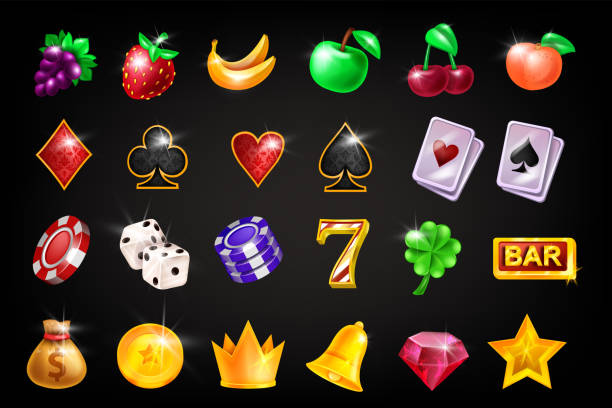
Poker as a Social and Entertainment Activity
In India, poker has transcended its roots as a mere card game to become a cherished social and entertainment activity. It’s a pastime that brings people together, fostering camaraderie and excitement. Here’s how poker has woven itself into the fabric of Indian social life and entertainment.
The game of poker has long been a staple in Indian social circles, particularly among the upper classes. It’s not uncommon to find groups of friends or colleagues gathering in someone’s living room or a private club to engage in friendly games of poker. These gatherings are often casual, with the emphasis on the social aspect rather than the stakes. Laughter, banter, and the thrill of the game create an atmosphere of joy and relaxation.
In many Indian households, poker is a tradition passed down through generations. Elders often share stories of their poker escapades, and the younger generation eagerly learns the rules and strategies. This familial connection to the game reinforces its cultural significance. It’s not just about the cards; it’s about the shared experiences and the bonds formed over countless hands.
The social aspect of poker in India is also evident in the numerous poker clubs and lounges that have popped up across the country. These venues offer a space for enthusiasts to meet, play, and socialize. They often host tournaments and events that attract players from all walks of life. The camaraderie is palpable, with newcomers and seasoned veterans alike sharing tips and tales.
Poker’s entertainment value is undeniable. It’s a game that keeps the audience engaged, whether they’re playing or simply watching. The suspense of each hand, the strategic moves, and the unpredictable outcomes make for thrilling viewing. It’s not uncommon for poker games to be the centerpiece of a party or a gathering, with friends and family tuning in to see who will emerge as the victor.
In recent years, the rise of online poker platforms has further democratized the game. These platforms allow players from all over India to compete against each other, regardless of their location. The convenience of online play has made poker more accessible, attracting a broader audience. It’s not just about winning money; it’s about the entertainment and the challenge of playing against skilled opponents.
Poker’s entertainment value also extends to the media. The game has been featured in numerous films and television shows, often portrayed as a way for characters to unwind or seek revenge. These portrayals have contributed to the game’s popularity, with many viewers interested in trying their hand at the game themselves.
Moreover, poker’s social and entertainment aspects are not limited to adults. Many schools and colleges in India now offer poker clubs or tournaments, introducing students to the game as a way to develop critical thinking skills and learn about strategy and probability. The educational value of poker is recognized, and it’s seen as a fun and engaging way to learn.
The game of poker in India is also a platform for charity and community service. Poker tournaments are often organized to raise funds for various causes, from education to healthcare. The spirit of giving back is woven into the fabric of these events, making poker a force for good.
In conclusion, poker in India is much more than a game of cards. It’s a social activity that brings people together, fosters connections, and provides entertainment. Whether it’s a casual game with friends, a high-stakes tournament, or an educational experience for young players, poker continues to be a beloved part of Indian culture and entertainment.
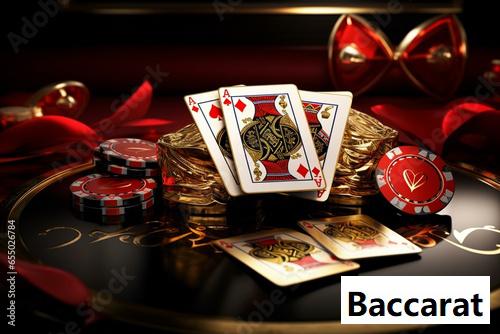
The Impact of Online Poker Platforms
In India, the rise of online poker platforms has transformed the way people engage with the game. These digital platforms have brought about a myriad of changes, reshaping the landscape of poker entertainment.
The convenience of online play has made poker more accessible than ever before. Gamers can now log in from the comfort of their homes, offices, or even while on the move, using their smartphones or laptops. This ease of access has significantly expanded the player base, attracting both casual enthusiasts and seasoned professionals.
Online poker platforms have introduced a wide array of games, catering to diverse preferences. From classic Texas Hold’em and Omaha to less-known variants like Razz and Seven Card Stud, these platforms offer a rich variety that keeps players engaged. The availability of multiple tables and tournaments around the clock ensures there’s always a game to join.
The social aspect of poker hasn’t been overlooked by these platforms. Many offer chat features, allowing players to interact and form communities. This social interaction adds a layer of excitement to the game, as players can share strategies, banter, and celebrate wins together, even when they’re miles apart.
Security and fairness are paramount in the online poker world. Reputable platforms employ advanced encryption technology to protect players’ personal and financial information. Additionally, they use random number generators (RNGs) to ensure the outcome of each hand is fair and unpredictable, maintaining the integrity of the game.
The rise of online poker has also had a significant economic impact. It has generated substantial revenue through entry fees for tournaments, buy-ins for sit-and-gos, and rake structures. This financial boost has trickled down to various sectors, including technology, marketing, and even event management.
Online poker platforms have also played a crucial role in fostering a competitive poker scene. With regular tournaments and satellite entries to live events, they provide players with the opportunity to qualify for prestigious poker tours and win life-changing sums of money. This has inspired many to take their game more seriously, leading to a rise in skilled players across the country.
The accessibility of online poker has also had a democratizing effect on the game. It’s not just about the big money anymore; it’s about the thrill of the game, the challenge of mastering different strategies, and the camaraderie among players. This shift has made poker a more inclusive activity, attracting a diverse range of participants.
Despite the numerous benefits, online poker has faced its fair share of challenges. One of the most significant is the issue of gambling addiction. The ease of access and the fast-paced nature of online play can make it difficult for some individuals to control their spending and time spent on the platform. As a result, responsible gaming tools and resources have become increasingly important features on these platforms.
Moreover, the legal landscape surrounding online poker in India remains complex. While some states have taken steps to regulate and tax online gambling, others have yet to address the issue. This patchwork of laws creates a challenging environment for both operators and players, with varying degrees of legality and enforcement.
The impact of online poker platforms on the Indian gaming scene is undeniable. They have brought poker to the forefront of entertainment, offering a blend of skill, strategy, and social interaction. As technology continues to evolve, it’s likely that online poker will continue to shape the future of gaming in India, bringing new opportunities and challenges along the way.
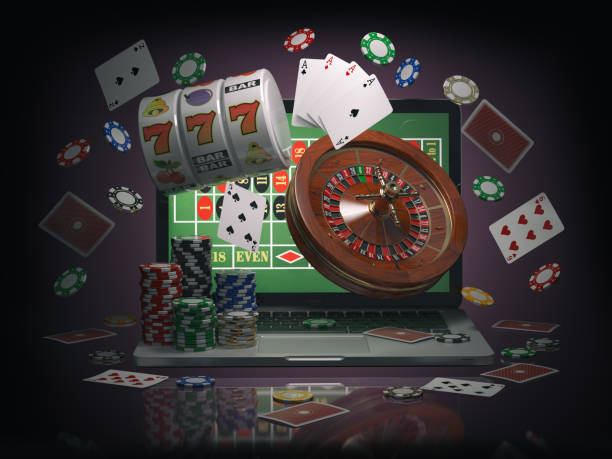
The Poker Community in India
In India, the poker community has grown to be a vibrant and diverse group of enthusiasts, each bringing their unique perspectives and skills to the table. From casual players to seasoned professionals, the community reflects the country’s rich tapestry of culture and gaming. Here’s a glimpse into the dynamic world of poker in India.
Players from various walks of life come together in poker rooms and online platforms, united by a shared love for the game. From engineers and doctors to entrepreneurs and artists, the community is as varied as the cities it calls home. The camaraderie that develops among players is often a testament to the universal appeal of poker.
The social aspect of poker in India is deeply rooted in the country’s tradition of hosting large gatherings and celebrations. Many players find that the game brings them closer to friends and family, fostering a sense of belonging and community. Poker nights have become a staple in many social circles, providing an opportunity for people to unwind, bond, and enjoy a friendly game.
In the realm of competitive poker, the community showcases a fierce spirit of rivalry, with tournaments and championships becoming increasingly popular. These events attract players from across the country, with some even vying for spots in international tournaments. The Indian poker community takes pride in its growing reputation on the global stage.
One cannot overlook the role of online poker platforms in nurturing the community. These platforms have made the game accessible to a wider audience, allowing players to compete from the comfort of their homes. Online forums, discussion groups, and social media pages dedicated to poker have become hubs for players to share tips, strategies, and experiences.
The community often organizes meetups and gatherings, providing a real-life networking opportunity for players. These events are not just about playing poker but also about fostering friendships and connections. The sense of community is further strengthened through the exchange of knowledge and support among players.
Poker in India is also a platform for players to showcase their talent and ambition. Many young players aspire to make a name for themselves in the world of poker, with some already achieving significant milestones. The community takes pride in its success stories, using them as inspiration and motivation for others.
Despite the challenges faced by the poker community in India, such as legal hurdles and social stigma, there is a growing movement to normalize and promote the game. Poker clubs and organizations are working to create a positive image of the sport, emphasizing its intellectual and strategic aspects.
The community also engages in philanthropic efforts, using poker as a means to raise funds for various causes. Poker tournaments have been organized to support education, healthcare, and environmental initiatives, showcasing the game’s ability to bring people together for a greater good.
In recent years, the Indian poker community has seen a surge in women players. This demographic has contributed to the game’s diversity and has helped break down gender stereotypes. Women players have shown exceptional skill and determination, becoming an integral part of the community.
The international exposure of Indian poker players has also had a significant impact on the community. Players who have traveled and participated in international tournaments have returned with newfound experiences and insights, enriching the local scene.
In conclusion, the poker community in India is a testament to the game’s ability to bring people together, regardless of their background. From casual players to professional competitors, the community is united by a shared passion for the game. As poker continues to grow in India, so does the strength and influence of its community, making it a force to be reckoned with both locally and on the global stage.
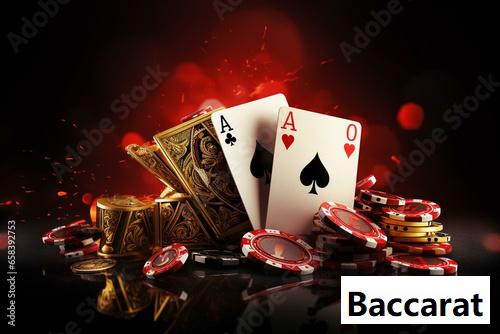
The Role of Poker in Indian Casinos
In India, the integration of poker into the casino landscape has added a layer of excitement and sophistication to the gaming experience. Poker, once a game primarily played in backrooms and informal gatherings, has found its way into the formal casino setting. Here’s how poker has evolved in Indian casinos:
Casinos, traditionally known for their slot machines and table games like roulette and blackjack, have begun to embrace poker as a staple. The inclusion of poker tables has not only catered to the seasoned players but has also intrigued newcomers looking to experience the thrill of bluffing and strategy. The presence of poker in Indian casinos reflects a broader shift in gaming culture, where skill and intellect are celebrated alongside luck.
The ambiance of a poker table in an Indian casino is distinctly different from that of a slot machine or a roulette wheel. It’s a place where players gather not just to win money but to engage in a form of intellectual discourse. The quiet murmurs of strategy, the occasional chuckle at a good bluff, and the tension that builds as hands unfold create an atmosphere that’s both exclusive and inclusive.
Indian casinos have recognized the need to offer a variety of poker games to cater to different skill levels and preferences. From the fast-paced and intense Texas Hold’em to the more leisurely and strategic Omaha and Seven-card stud, these casinos ensure that there’s something for everyone. The diversity of games has also brought in a diverse range of players, from seasoned professionals to casual gamblers.
The introduction of poker in Indian casinos has also brought about a professionalization of the game. Casinos often employ trained dealers who are well-versed in the rules and nuances of various poker games. This not only enhances the player experience but also ensures that the game is conducted fairly and with the highest level of professionalism.
Moreover, the integration of poker into the casino setting has sparked a community of players. Poker clubs within casinos host regular tournaments and cash games, fostering a sense of camaraderie among players. These clubs often become the hub for players to discuss strategies, share tips, and simply enjoy the game in a friendly environment.
The role of poker in Indian casinos extends beyond just the tables. Many casinos have started offering poker training sessions and workshops, aimed at both beginners and experienced players. These sessions not only help players improve their skills but also serve as a way to educate them about the game’s history and etiquette.
In terms of regulations, Indian casinos have to navigate a complex legal landscape when it comes to poker. While some states have stricter gambling laws, others have been more open to the idea of legalizing poker within their boundaries. This has led to a varied approach to poker within the casino industry, with some casinos offering poker as a form of entertainment, while others have embraced it as a significant revenue stream.
The integration of poker into Indian casinos has also had an impact on the wider gaming industry. Casinos that once focused solely on luck-based games have seen an increase in foot traffic and revenue due to the appeal of poker. This shift has encouraged other casinos to follow suit, leading to a more dynamic and diverse gaming landscape.
Furthermore, the presence of poker in Indian casinos has sparked an interest in poker outside of the gaming world. Many non-gamblers have been intrigued by the game’s popularity and have started to explore it for leisure. This has contributed to a growing awareness and appreciation for poker as a social and intellectual activity.
In conclusion, the role of poker in Indian casinos is multifaceted. It has become a symbol of the evolving gaming culture in India, offering players a blend of excitement, strategy, and community. As casinos continue to refine their poker offerings, it’s likely that poker will remain a key component of the Indian casino experience, attracting players from all walks of life.
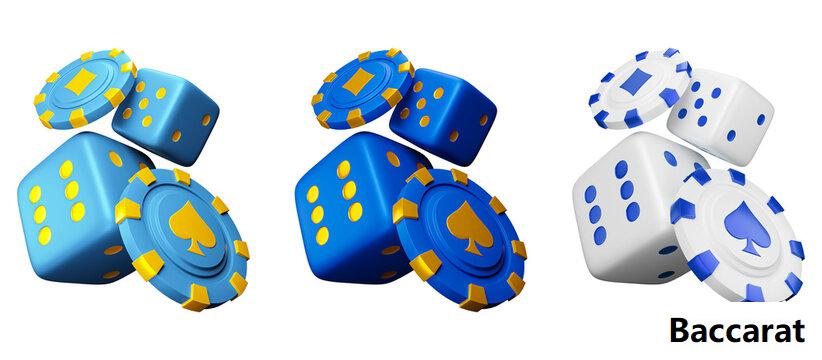
Conclusion: Poker’s Growing Presence in India
In India, the world of poker has been evolving, becoming more than just a game of cards; it’s a cultural phenomenon that reflects the nation’s diverse social fabric. Poker’s growing presence in India is marked by a surge in popularity, both offline and online, and its impact on the social and entertainment landscape is profound.
The poker community in India is diverse, ranging from casual players to seasoned professionals. They come from all walks of life, united by a shared passion for the game. This community thrives on tournaments, home games, and online platforms, creating a vibrant ecosystem that fosters camaraderie and competition.
Socially, poker has become a staple in many Indian households. It’s not uncommon to find friends and family gathering around a table for a friendly game, often accompanied by laughter and lively banter. This informal setting allows for the cultivation of strategic thinking and the development of social skills, as players engage in psychological warfare and learn the art of bluffing.
Online poker platforms have played a significant role in expanding the reach of poker in India. These platforms offer convenience, allowing players to compete from the comfort of their homes. They also provide a level of accessibility that traditional casinos cannot match, as they cater to players of all skill levels and budgets.
Tournaments have become a cornerstone of the poker community in India. From local club events to international championships, players have numerous opportunities to showcase their skills and win prizes. These tournaments not only serve as a platform for competition but also as a social gathering, where players from different backgrounds come together to share their love for the game.
The social aspect of poker in India is further highlighted by the numerous poker clubs and lounges that have popped up across the country. These venues offer a space where players can enjoy a game of poker, often with a side of food and beverages, creating an atmosphere that’s both relaxing and stimulating.
In terms of entertainment, poker has become a staple in the Indian entertainment industry. It’s not uncommon to see poker-themed events, reality shows, and even movies featuring the game. This exposure has helped demystify poker and made it more acceptable within mainstream culture.
Poker’s role in Indian casinos is multifaceted. It has become a significant revenue generator for these establishments, attracting players from all over the country. Casinos have adapted to cater to the poker-playing demographic, offering dedicated poker rooms with professional dealers and a variety of games.
The inclusion of poker in Indian casinos has also had a positive impact on the hospitality industry. Poker players often stay for extended periods, leading to increased occupancy rates and revenue for hotels and restaurants within the casino complexes.
Furthermore, the presence of poker in Indian casinos has sparked a renewed interest in the game’s history and strategy. Casinos often host poker workshops and seminars, providing players with the opportunity to learn from experts and improve their skills.
From a cultural perspective, poker has become a symbol of India’s growing confidence and sophistication. It represents a blend of tradition and modernity, as the game’s roots can be traced back to ancient India, while its contemporary form is a testament to the nation’s embrace of global trends.
In conclusion, poker’s growing presence in India is a reflection of the country’s dynamic social and entertainment scene. It has transcended its status as a mere card game, becoming a cultural phenomenon that brings people together, fosters social skills, and contributes to the economic growth of the nation. As the game continues to evolve, it’s clear that poker’s role in Indian society will only become more significant.